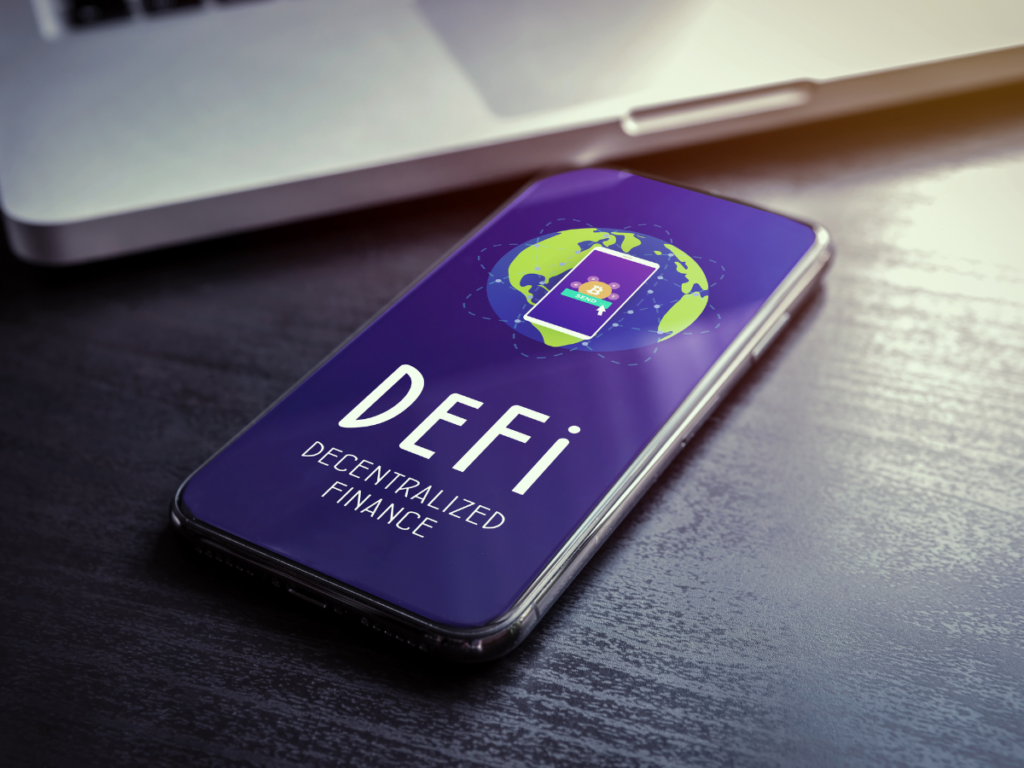DeFi’s $50B milestone signals a decade of growth, disrupting traditional finance. Explore the evolving decentralized financial landscape.
In the past ten years, the field of decentralised finance has advanced significantly. What was originally a little-known system has developed into a vibrant global financial ecosystem. As evidence of the enormous value in this financial system, the entire money locked in DeFi accounts, systems, and applications recently moved above $50 billion USD.
There are a plethora of ways that decentralised financial systems are portrayed, ranging from cryptocurrencies to massive exchanges, DeFi applications to the Metaverse. DeFi still trails traditional (centralised) finance, even with its volatility, notable adoption over the past ten years, and billions of USD in the system.
This is not surprising, of course. For hundreds of years, centralised finance has been the only choice, therefore everyone actively uses CeFi to participate in financial systems. Having said that, there has been a significant change in this area over the last five years, with more people than ever before becoming aware of decentralised finance and turning to it for innovative approaches to managing their finances.
Furthermore, as more people become aware of the DeFi space, the main obstacles to widespread adoption are being swiftly removed. Obtaining funding has been one of these difficulties. Although cryptocurrencies offer a convenient means of investing and diversifying investment portfolios, users may encounter challenges when attempting to withdraw their funds in fiat currency.
Although CeFi customers can use ATMs to withdraw money directly from their accounts, there aren’t many cryptocurrency ATMs. That being said, businesses such as Soil are developing creative ways to close the gap between CeFi and DeFi by facilitating immediate access to cryptocurrency-backed money.
Let’s investigate the realm of cryptocurrencies and show how DeFi solutions are developing quickly and offering distinctive substitutes for conventional finance.
The Challenges Faced by Cryptocurrency Platforms to Centralised Finance
The fact that traditional financial institutions are infamously inaccessible is one of their core issues. Over 1.4 billion individuals are still unbanked in 2023, unable to access a bank account because to legacy infrastructure’s inefficiencies. Approximately 4.5% of US citizens lack a permanent address, making it impossible for them to open an account.
While traditional finance is a vast system with many advantages, as other options become available, its slow operations and lack of accessibility make it less and less enticing. Decentralised finance presents a formidable obstacle to conventional infrastructure by providing a novel system that is open to anyone.
Furthermore, blockchain technologies present a promising counter to financial fraud, bribery, and illicit payments by making financial ledgers publicly accessible. Every transaction completed via a blockchain network is recorded on a block of data that is accessible to the public for review.
Decentralised financial systems offer a promising anti-corruption tool by making payments transparent, which makes them very desired for economies that deal with enterprise, social, and governmental misconduct. Blockchain’s decentralised structure also makes it a desirable alternative for anyone seeking to adopt a more egalitarian financial system and break free from established power structures like governments and banks.
This cutting-edge technology is quickly taking the lead among consumers, investors, and even companies searching for a fresh approach to managing their finances. Nevertheless, DeFi is not a perfect substitute for centralised financial systems. Not quite yet, at least.

What Services Is Not Provided by DeFi But Are by Traditional Finance?
DeFi is providing a more competitive alternative to centralised finance, but there are still some issues that the blockchain community is working to resolve. The first and most significant of these is the regulatory issue. DeFi is vulnerable to several additional security risks that traditional finance’s compliance handles in the absence of centralised regulation.
Most recently, the globe witnessed FTX fraudulently use billions of user funds; this was made possible by the absence of regulations, which allowed the corporation to exploit its users. Unfortunately, this is not the first time that tardy responses from the government and supportive communities have resulted from the glacial movements of regulatory agencies and uncertainties about how to regulate in the realm of decentralised finance.
ATM-level accessibility is another centralised finance faucet that DeFi hasn’t yet replicated. Although users are able to trade and invest in digital assets, it is now more difficult for them to withdraw their money in fiat currency.
Having said that, the DeFi community is now dealing with each of these fundamental problems. For instance, Soil, a blockchain startup, is now developing a withdrawal plan supported by cryptocurrency. Owners of cryptocurrencies will have the ability to access their funds instantaneously by making fiat currency withdrawals via crypto-backed withdrawals.
Even though there are other options as well, this shows that DeFi is actively striving to go beyond its current limitations. DeFi might be well-positioned to capture a bigger share of the financial markets over the course of the next ten years.
In the end
Over the past few years, the field of decentralised finance has advanced significantly. Although the public still uses traditional banking more frequently, the difference between DeFi and CeFi is beginning to close due to the quick development of new technology, systems, and strategies.
We should expect to see more decentralised finance acceptance, utility, and performance as blockchain technology develops. In the coming years, fundamental advancements such as Soil’s instantaneous DeFi money will contribute to undermining the current dominance of traditional finance.











